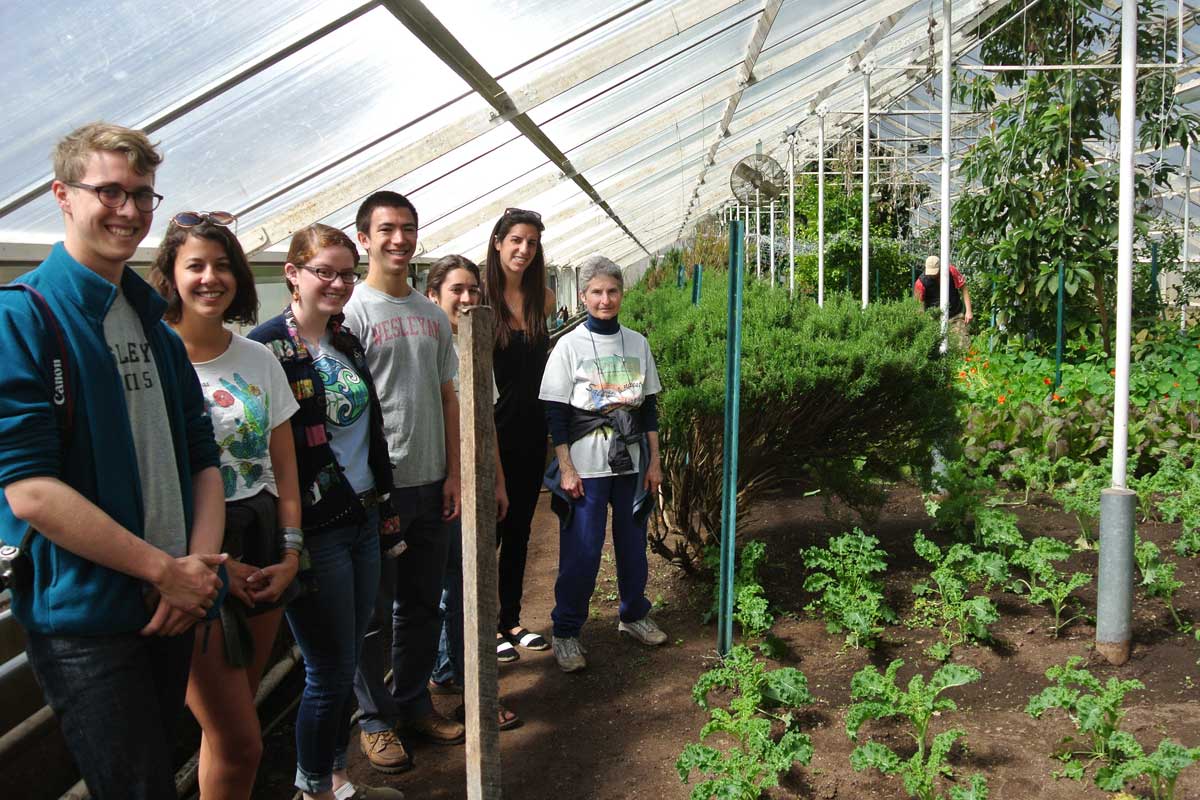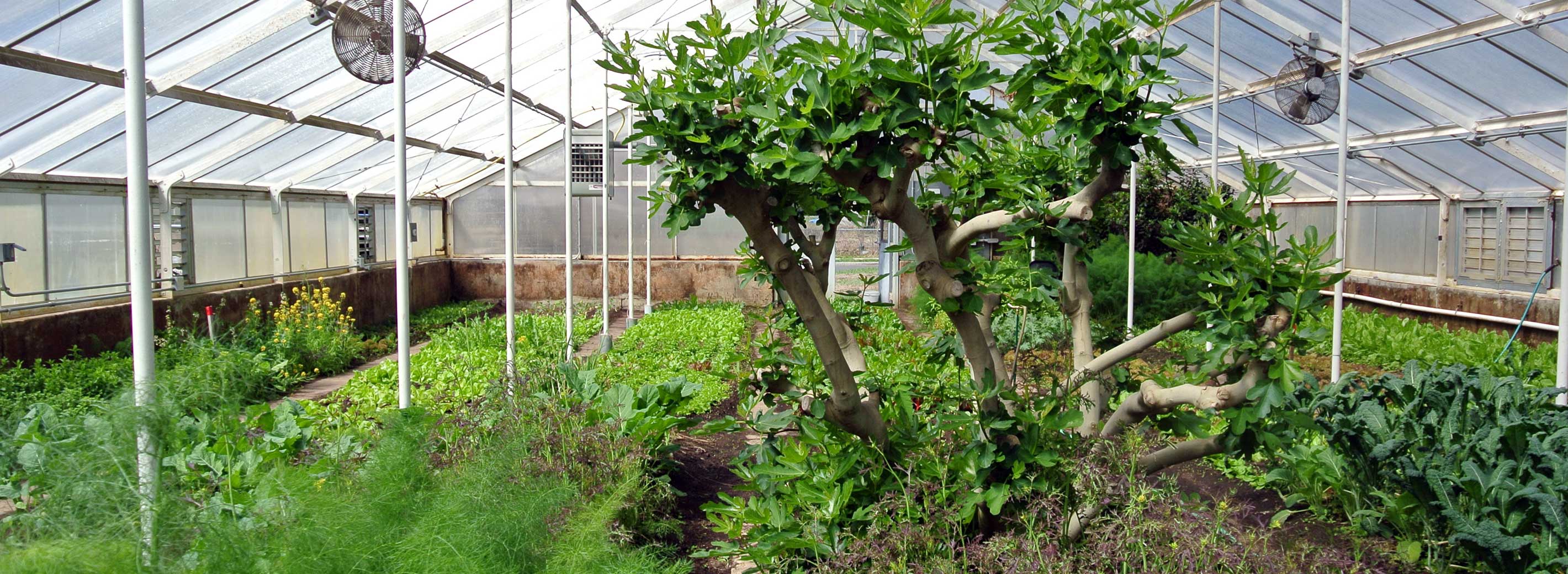
Wesleyan Students Visit Urban Oaks — and Plant Seeds of Change
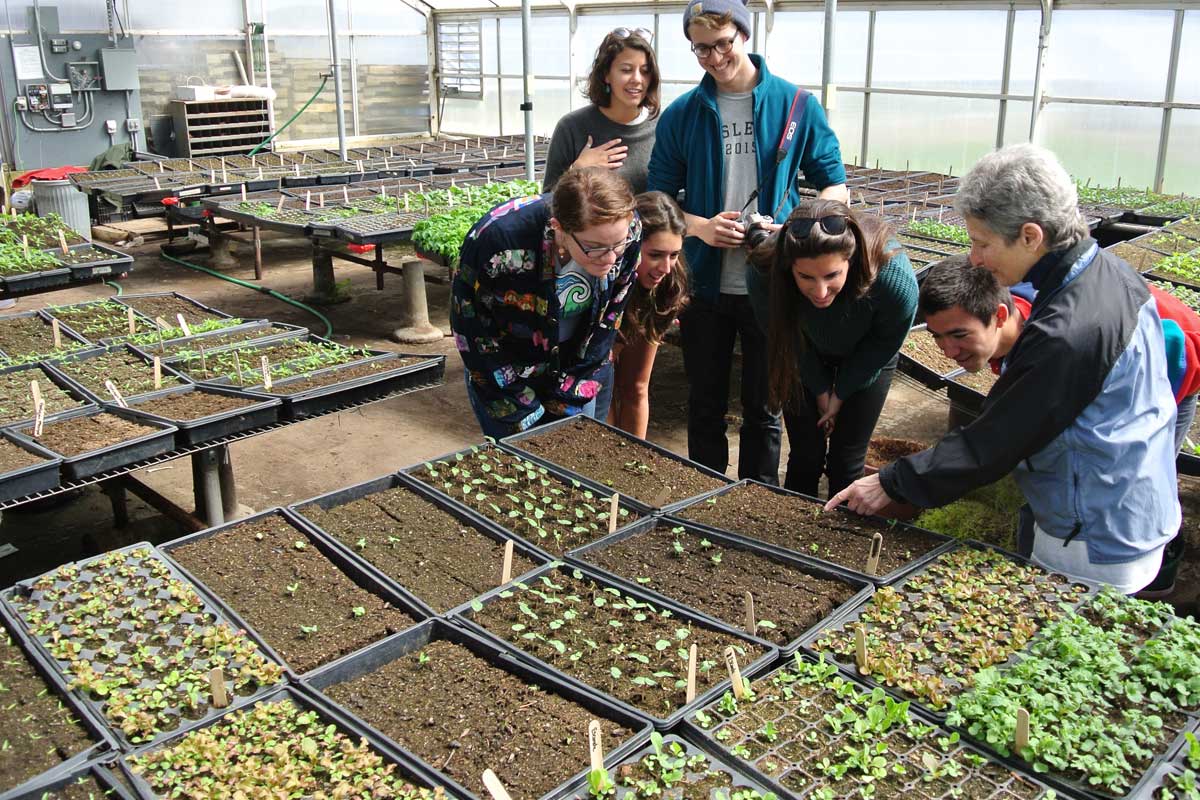
Liz Aaronsohn of Urban Oaks Organic shows Wesleyan students “the beginning of the miracle of life”
The closer I got to Bon Appétit Farm to Fork vendor Urban Oaks Organic farm, the more convinced I was that my GPS had led me astray. The device told me that I had less than a minute left on my drive, but outside my window I saw a liquor store with bars over its doors and windows, trash littering the sidewalk, vacant lots, and big apartment buildings in need of repair.
As a fellow for the Bon Appétit Management Company Foundation, I spend more time than most on farms. It’s one of my favorite parts of the job. Most farm visits take me out of cities, driving down country roads and through rural farmland. Acres of corn, century-old New England barns, tractor crossing signs, and wandering chickens all serve as mental preparation before I set foot into an agricultural world. But this was something different.
I pulled into the driveway. As I stepped out of my car, I was relieved to see the entrance to two large greenhouses. The door of one of the buildings opened and a petite woman walked toward me and smiled: Liz Aaronsohn, a member of the farm’s board of directors and a longtime civil rights activist and professor.
The Wesleyan University students joining me for the tour weren’t far behind. Noelle Hiam ’15 and Rachel Lindy ’15 had created and led a student-run spring seminar called Food Justice and Sovereignty for 20 of their peers. Through readings, films, and discussion they had immersed themselves in farm labor issues and food deserts (places where residents have very little easy access to affordable healthy food). Now they were eager to leave campus and see where some of the fruits and vegetables they eat everyday on campus are grown.
When I explained to Liz that the students were studying food justice, her face lit up. “Oh my gosh! That’s what we’re all about!” she exclaimed. Liz went on to explain that Urban Oaks Organic is located in the lowest-income neighborhood in Connecticut’s third-worst food desert. That’s intentional. Urban Oaks Organic is a non-profit farm that grows organic food year round in Connecticut in order to begin transforming that surrounding food desert into an oasis.
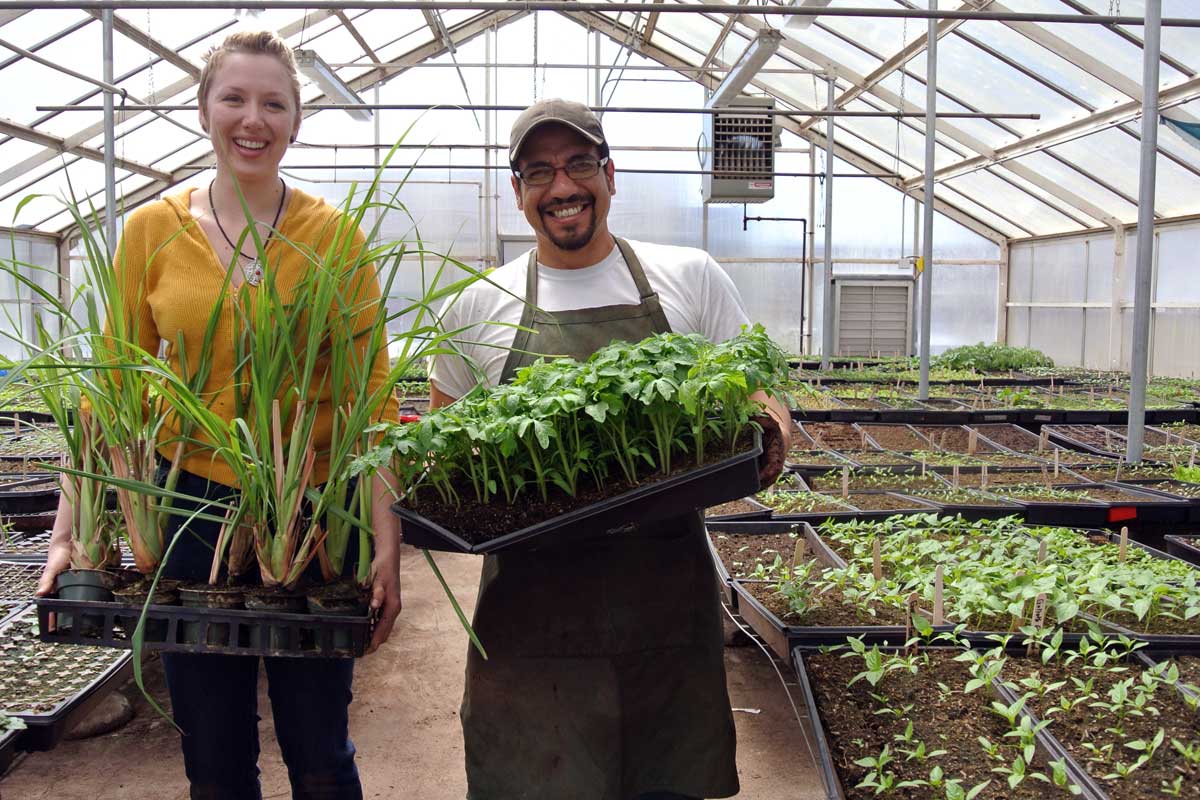
Victor Blanco and Emma Petersen, farmers at Bon Appétit Farm to Fork vendor Urban Oaks Organic
And transform they have. Through the EPA’s Brownfields Cleanup program, what was an abandoned flower farm with a shattered greenhouse 15 years ago now holds four greenhouses operating year round. What used to be a gas station and auto repair shop is now a multi-use farm space: offices for employees of the farm and a retail space decorated with brightly colored signs and baskets ready for the latest crop. On just 3.5 acres only 13 miles from Wesleyan’s campus, Urban Oaks grows more than 250 varieties of fruits, vegetables, and herbs, including salad greens, cooking greens, heirloom tomatoes, and garlic. Some of these greenhouses are passive, meaning they run on sunlight alone, which is sufficient for many of these crops. But with the help of some heated greenhouses, Urban Oaks also grows some crops that elicit wows from Northeasters, like figs, avocado, and grapefruit.
“You have to have faith that if you plant a seed in the right conditions, it will eventually grow.”
Urban Oaks employs eight year-round employees and about a dozen teenagers during the summer season. Hiring local teens is just one of many ways Urban Oaks lives out its mission to not just feed, but be implanted in its community. Its board of directors boasts at least 50% of its members from the neighborhood and at least 50% local, professional farmers. In addition to Bon Appétit cafés, the farm sells to restaurants, through a CSA program, and at their onsite farmers market, where they fundraise in order to double the amount of money available to low-income families through Woman Infants and Children (WIC) and Supplemental Nutrition Assistance Program (SNAP, formerly known as Food Stamp) programs.
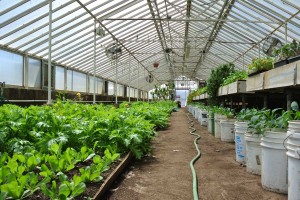
The beds are raised to hip-level to help farmworkers and volunteers with better ergonomics
Lastly, Urban Oaks launched a mobile farmers market this spring, to make fresh, organic, local fruits and vegetables as convenient as possible for the populations they are trying to serve. The flyers are in both Spanish and English, and the mobile market goes to a different part of the neighborhood each day of the week.
I asked Liz if she thought things in the neighborhood, and in our food system, were really changing. “As educators, and as farmers,” Liz told us, “you have to have faith that if you plant a seed in the right conditions, it will eventually grow.”
Some days, that faith is stronger than others. As I learned, Urban Oaks by many measures is a success story. They sell everything they grow, get a premium for the organic produce, and have truly imbedded themselves and their food into the community. Yet they struggle financially and are dependent on fundraising and volunteers to operate. What’s more, they lease the land they have invested so much in, and in order to feel secure about the farm’s future will need to raise the funds to purchase it.
But on this sunny spring day in Connecticut, I believed wholeheartedly in the seeds planted by Urban Oaks Organic and what the young leaders touring the farm with me might later do. Change, like farming, requires hard work, patience and a whole lot of tiny miracles.
